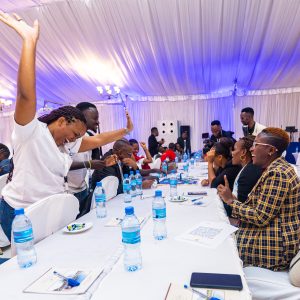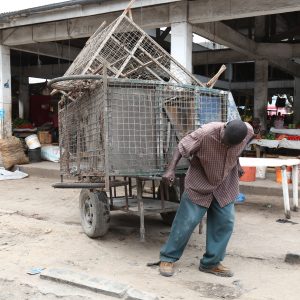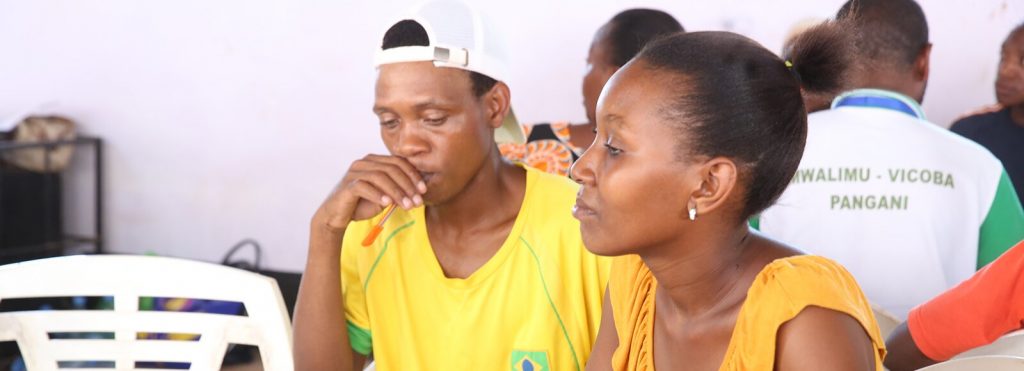HOW CHANGE HAPPENS
Twaweza uses a problem-driven approach to both analysis and planning. We think carefully and strategically about our work using political economy analytical frameworks and rigorous measurement practice to learn constantly about how the world works and how we can do our work better.
Analysis
Problems
Problem-driven political economy analysis approach: a thoughtful examination of the current socio-political situation, the main actors and the role they could play in solving the problem, relevant barriers and opportunities, as well as Twaweza’s advantage and expertise.
Hypothesis
The hypotheses present an outline of Twaweza’s planned initiatives and a possible scenario of their effect. They also allow for distilling key metrics (related to process, outcome, and effect) across the strategic period. Important to note is that the hypotheses are just that – hypothetical scenarios of what we, based on evidence and understanding of the context, believe could happen over our next four-year strategic period. They provide an articulation of our vision but allow flexibility to re-think and re-engineer our approach as we implement. Rather than a rigid frame, they ought to be read as a series of if-then statements, each with in-built nodes of reflection which allow us to take stock and re-align in a complex and shifting reality.
Success
Rather than a simple reversal of the problem statement, crafting a success requires breaking down some of the changes we would like to see that should generate momentum towards solving the problem. Often solutions are murky, so the journey towards addressing the problems is iterative.
Actors
Hierarchy in terms of an actor’s influence over an issue as well as other actors and Twaweza’s own network and capacity come into play when selecting actors.
Behaviours
Are we addressing their ability to act (their skills, the external environment), their opportunity (social and environmental norms) to act or their willingness to act (their motivation and interest). What do they do now and what do we want them to do?
Barriers/Incentives
The meat of the matter – what might prompt our actors to move from their current to our desired behaviour. What opportunities exist? And equally what might prevent them from doing so?
Our big bets
Animators, community representatives and local government champions increase the Ability, Motivation and Opportunities of citizens (in selected communities) to participate in governance and development decisions.
Through advocacy and communication, Twaweza demonstrates that citizen participation in local governance (including service delivery) leads to improved outcomes (in services, and governance); and in turn use this to influence sector ministries (local government, information, communications, services, legal affairs) to promote meaningful participation and incorporate the needs and aspirations of citizens in plans and implementation. Once the efficacy and success of participation are (re-)demonstrated, there will be increased appetite and uptake.
Enabling contextualised and systematically collected citizen voices to be heard will influence public policy debates at the national and sub-national levels consequently resulting in better services and governance.
Advocacy (soft and hard versions of advocacy) at the national level will prompt the government to respond by conceding elements of a more conducive civic space environment.
How information leads to action
Driving forces
- Local change agents will GALVANISE citizens to participate in local development processes and to contribute their own ideas, time and resources to development activities.
- Local change agents’ participation and engagement will PRESSURE local governments to be responsive.
- Successes will ENCOURAGE both parties to continue with new behaviours and ways of working.
- Media profiling successes and lessons locally and nationally will PRESSURE and ENCOURAGE early adopter citizens and local governments to engage and others to follow suit.
- Amplifying citizens’ voices will PRESSURE local and national government institutions to take them into account as well as serving to ENCOURAGE them to do so by making these perspectives easily accessible.
- Sharing successes will VALIDATE the actions of citizens and responsive officials and will MODEL behaviours and thus prompt others to take them up.
- Joint actions will PRESSURE the national government to respond and make concessions on civic space.
- Local success stories will DEMONSTRATE the value of civic space rights.
- Capacity development and joint work will ENCOURAGE civil society to work more effectively.
- Careful research, analysis and arguments will GALVANISE the government, local and national, to respond.
- Thoughtful angles and engaging accessible content will GALVANISE media to cover citizen agency and civic space issues.
Citizen agency, government response
Citizen agency:
- access, generate information
- monitor services and processes
- speak out
- demand
- contribute (time, money)
Government Response:
- accept, acknowledge data, stories, voices
- seek more information
- targeted/individualised action, solution
- public verbal response
- opening up decision-making processes
- implementing existing policies and processes
- sharing practice, success – across and up
- changing policies, laws (if needed)





